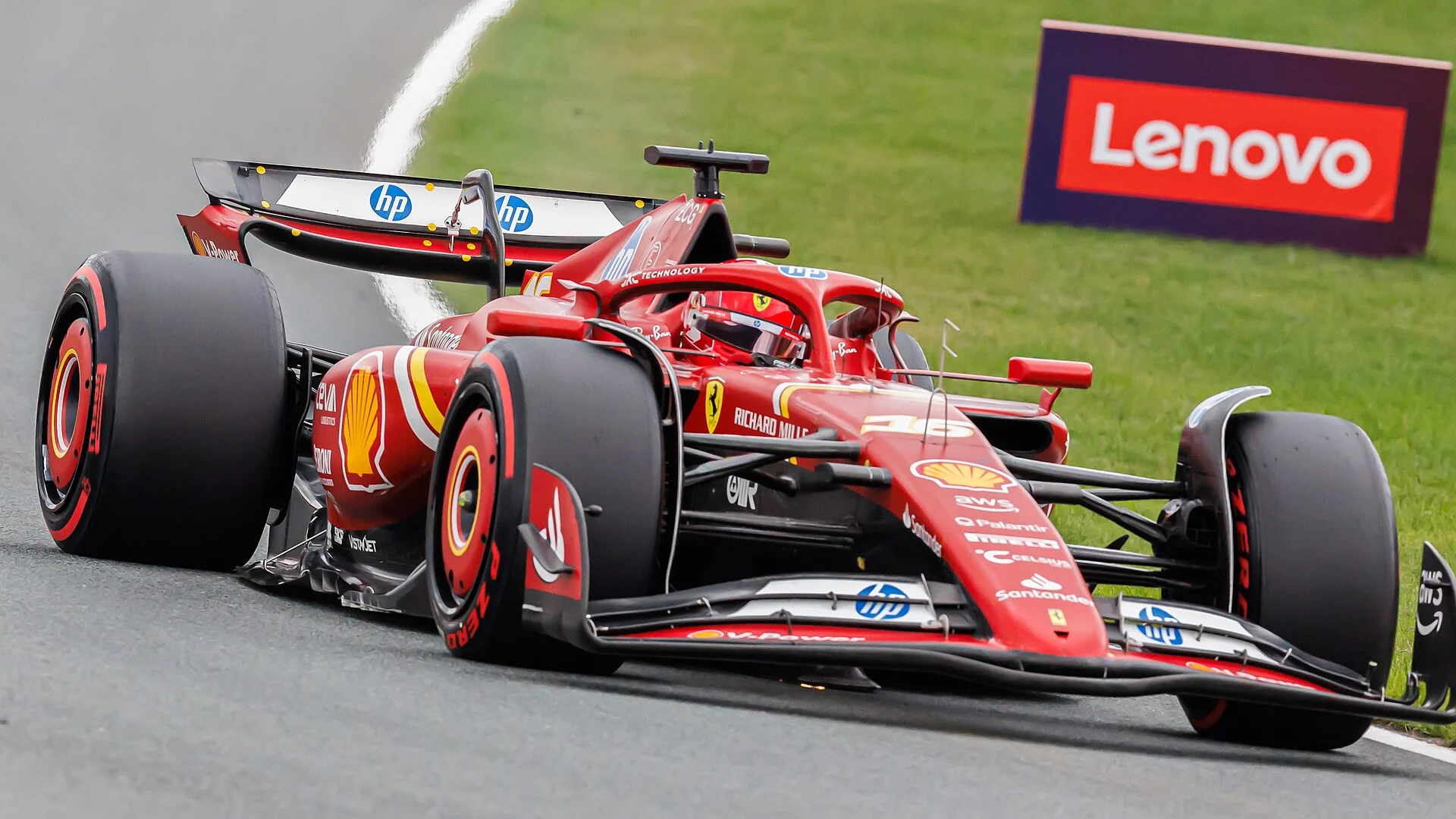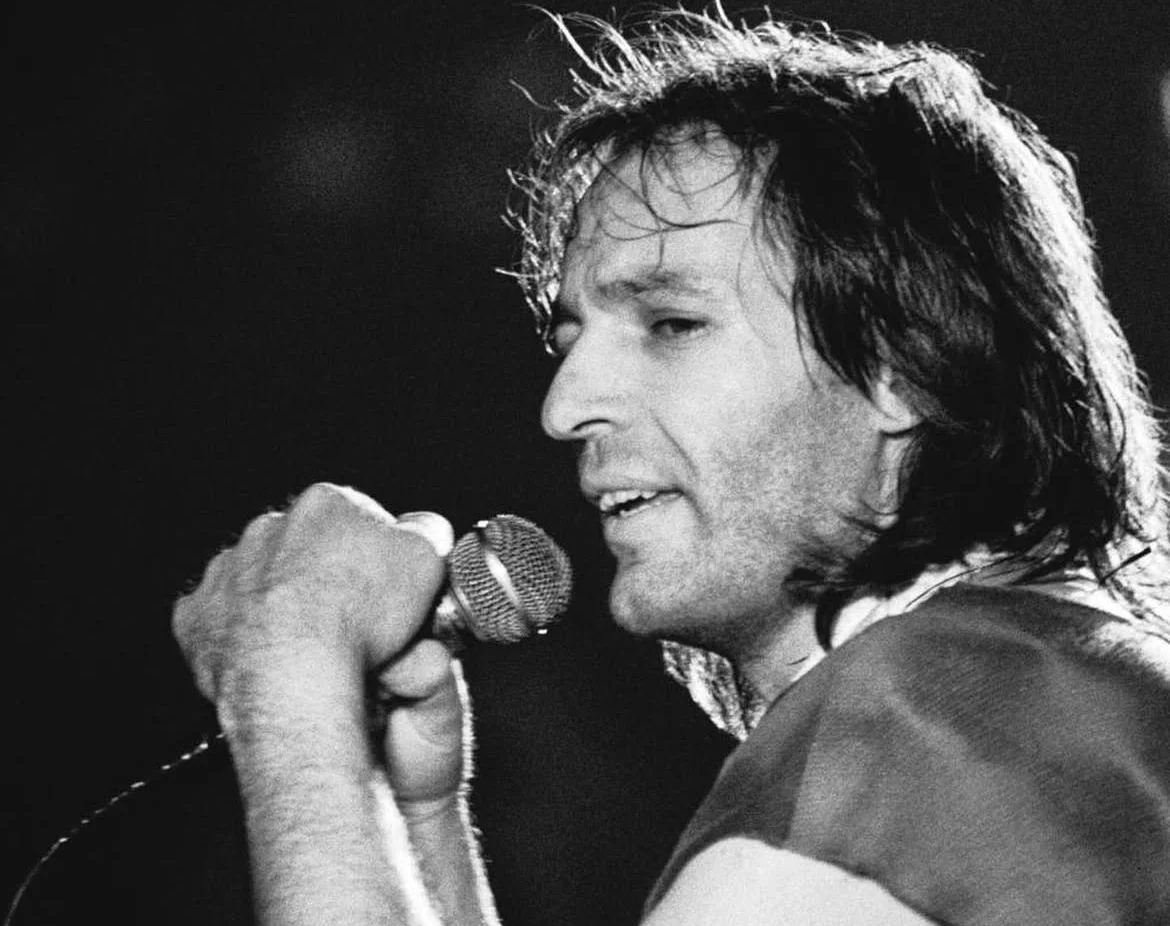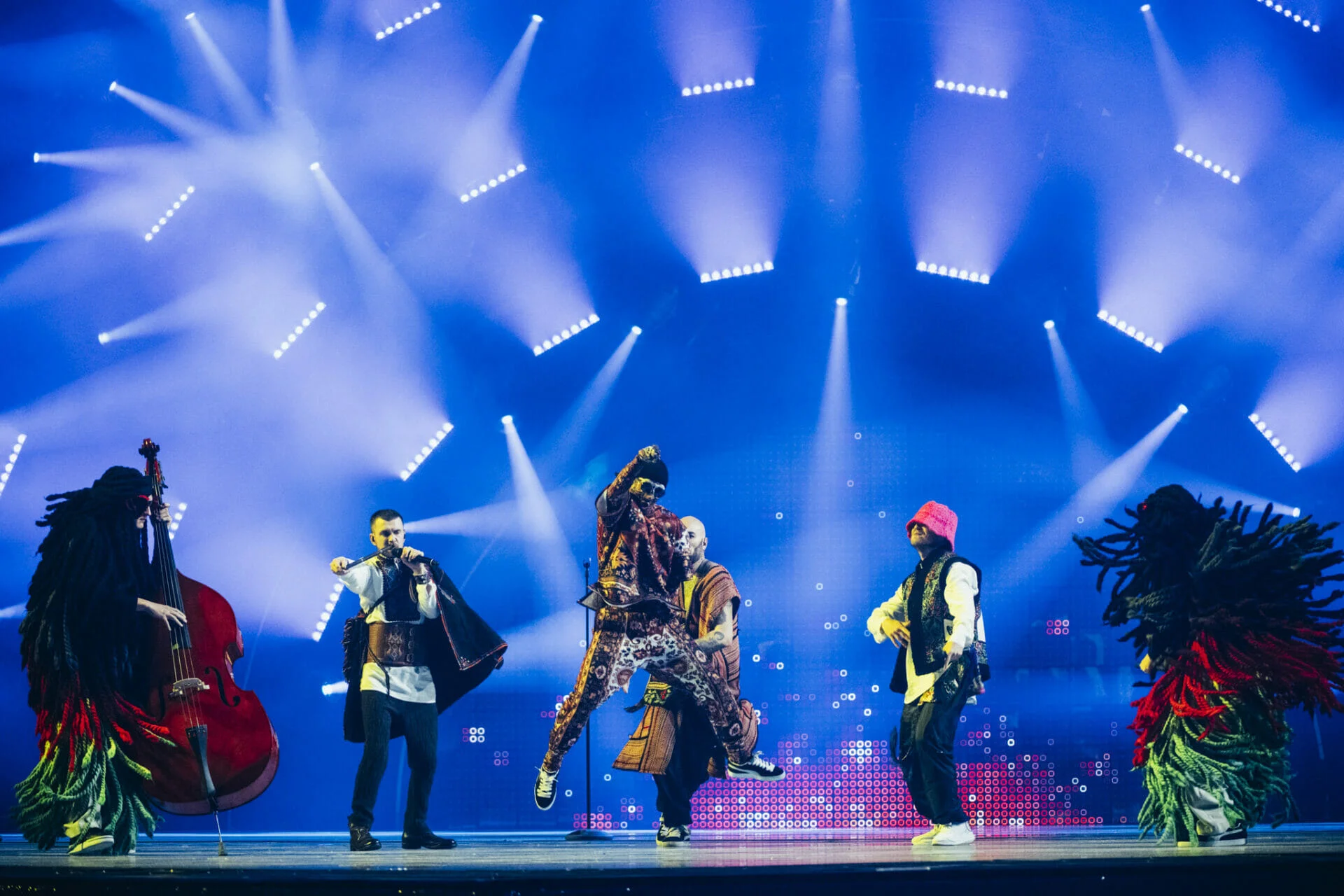
For people who had the chance to experience the Eurovision Song Contest‘s final from Turin’s Eurovillage, there were two kinds of songs competing. The ones which would make you stand up and dance. The ones who would make you sit down and close your eyes (either to dream or rest). And for the artists who made it to the top five, everyone was standing up.
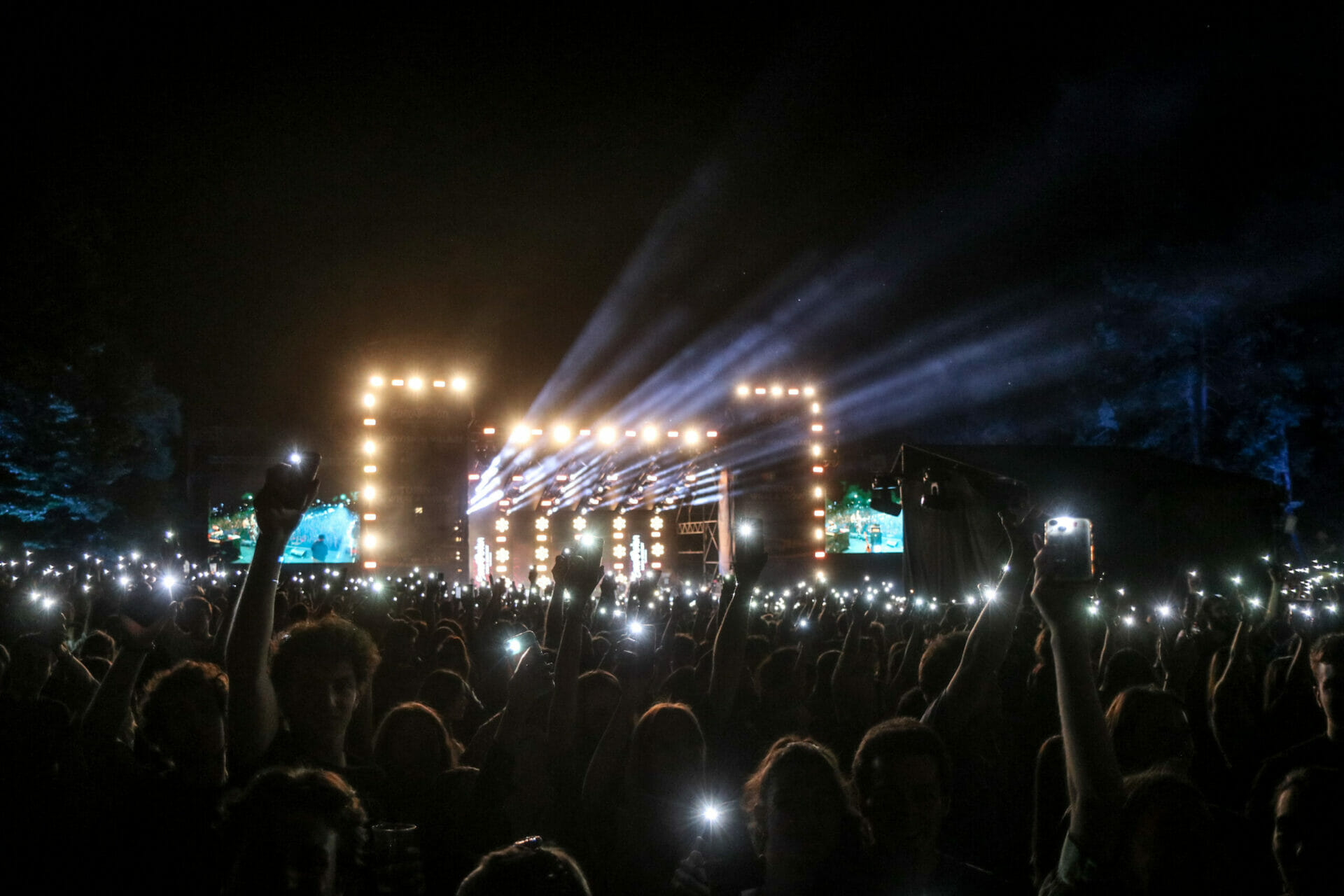
This is the top-five the audience expected: once again, the bookmakers got it right. But while many commenters attributed Ukraine’s victory only to the country’s political situation, Kalush Orchestra’s Stefania did deserve the podium. And this had been in the air for days.
The Eurovision Grand Finale
After the white and light-blue Eurovision logo, the grand final started singing “All we are saying is give peace a chance” first in a nocturnal Turin full of artists and after in a crowded Palaolimpico.
The night flowed with a good pace through performances on the amazing stage and a few sketches by the presenters – Alessandro Cattelan, Laura Pausini, and Mika.
Pausini has performed in the first minutes with a medley showing the exceptional abilities of Eurovision to create with fireworks, water, and lights a breathtaking show that, along with Mika, had to be one of the most heartwarming moments of the night.
Waiting for the votes, the audience has jumped back to memories and time: the galvanizing Måneskin, the 2021 Eurovision winner, and the delicate Gigliola Cinquetti, the first Italian artist who won the competition in 1964.
Ending all of the performances, the ritual of the voting and the time to know the winner had come.
A verdict on fusion music
On May 11, Kalush Orchestra enchanted their Turin-based fans with a live performance at Valentino Park. Even back then, everyone was dancing. It must be recognized: whatever one may think about their music, there was always something special about Kalush Orchestra’s gigs. And even without the fireworks and the dance troupes that make Eurovision so spectacular, they have a strong stage presence.
The way their beautiful shamanic costumes matched frontman Oleh Psjuk’s pink hat. The smooth mixture of hip-hop dance and slightly gopnik moves. In the Eurovision spirit, the band brought on stage a combination of local insights and global trends. And together with Moldova‘s Zdob şi Zdub & Advahov Brothers, they were the only ones who really dared do so.
This is as true for the performance as it is for the music. In a competition where most songs sound as if they were written in a rootless, undefined elsewhere, Kalush Orchestra’s folk-rap combo is original and successful. With his spolika flute, Vitalii Duzhyk gave the audience one of the catchiest melodies in this edition of the festival.
Not an easy win
The band didn’t really get an easy win. The support of the Eastern European countries, such as Poland, Moldova, Latvia, Romania and Lithuania, had brought The Kalush Orchestra up to the fourth place with 192 points, behind UK’s Sam Ryder, Sweden’s Cornelia Jakobs, and Spain’s Chanel.
The UK had one of the best performers competing this year. Ryder does not only have an astonishing voice and a nice track, Space Man. His boy next door attitude makes him instinctively likeable. He won the preferences of the national delegations, nor that even after the popular vote he could still boast a well-deserved second position.
However, it was the last round of vote, the one by the public, which overturned the tables, giving to Ukraine an astonishing 439 points which brought The Kalush Orchestra to the highest podium position, overcoming both Chanel and Ryder.
What did surprise was Subwoolfer‘s ninth position. Their track Give That Wolf A Banana has no particular musical originality. But it quickly became a musical smash, also thanks to the catchy choreography and costumes that the group was smart enough to bring among the people in Turin. Their success led many to believe the Norwegian band could really be this year’s Måneskin. The next Eurovision-made international superstars.
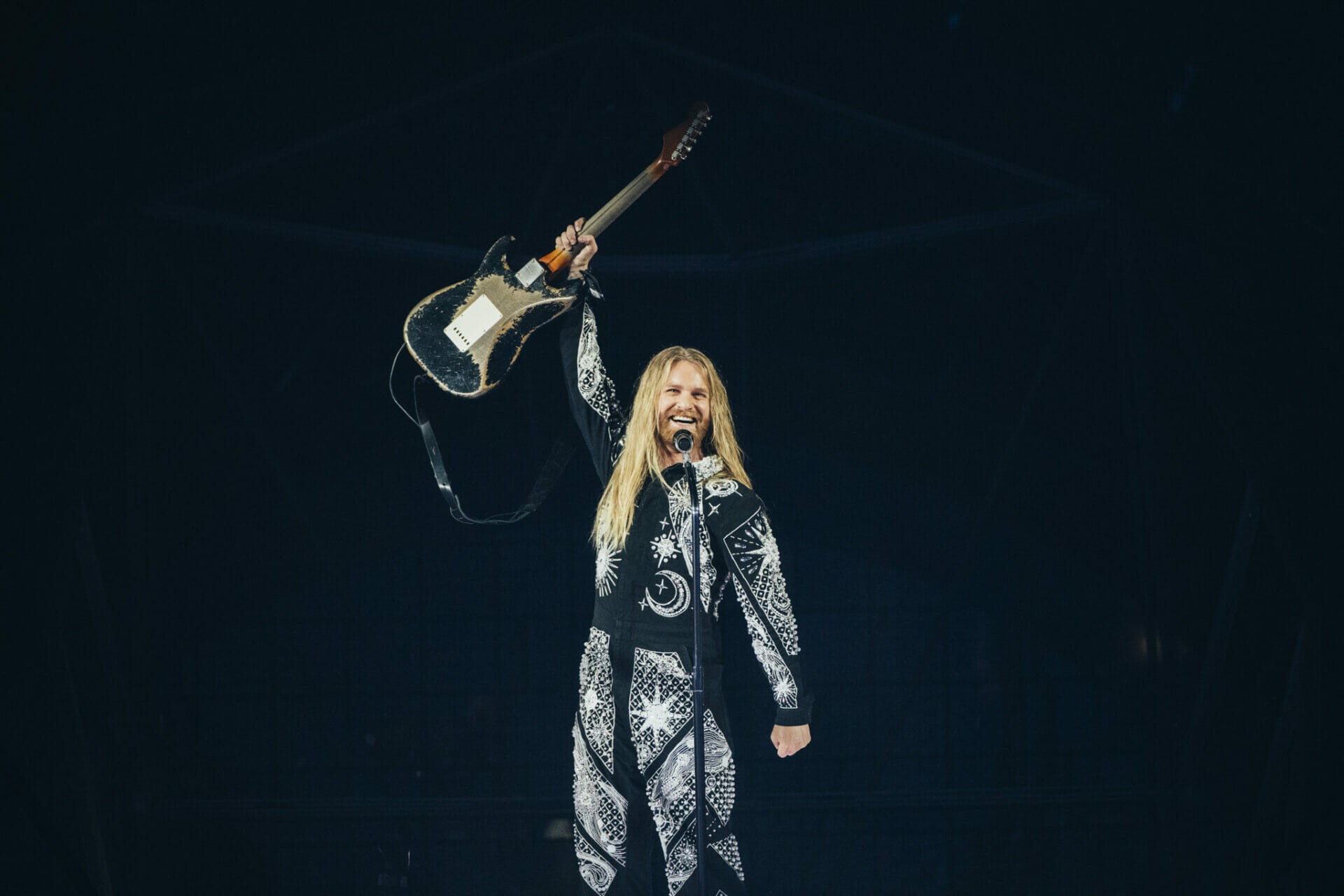
Fame can’t change it all
Just a few hours before their performance at the Eurovision Finals, the Italian band and former Eurovision winner declared that after the contest their lives “had completely changed”. One day the Sanremo Festival was their highest achievement ever. The day after they are composing the soundtrack for Elvis Presley’s biopic, Elvis by Baz Luhrmann.
But for Kalush Orchestra, it won’t be as easy. The band left Ukraine with special permission, and on May 16 they will have to be back in their country. If necessary, even to fight — as one of the band members is already doing. Fame won’t change it all, this time. And even if it doesn’t have to do with the music, there’s an undeniable political dimension to Kalush Orchestra’s victory. It starts from their song, Stefania, which Oleh wrote for his mother long before the war but has since been transformed into a hymn to all Ukrainian mothers and the motherland in general.
The band themselves decided at their own risk to close their gig with a political statement. “Please, help Mariupol, help Azovstal now,” said Oleh after performing in front of 7,000 people at the Palaolimpico, and an audience of more than 10 million watching from home. A hazard that almost cost them the victory. As they declared in the press conference, their priority wasn’t winning the contest, but making that very statement. And the question it raises is where the music contest ends, and the politics begins.
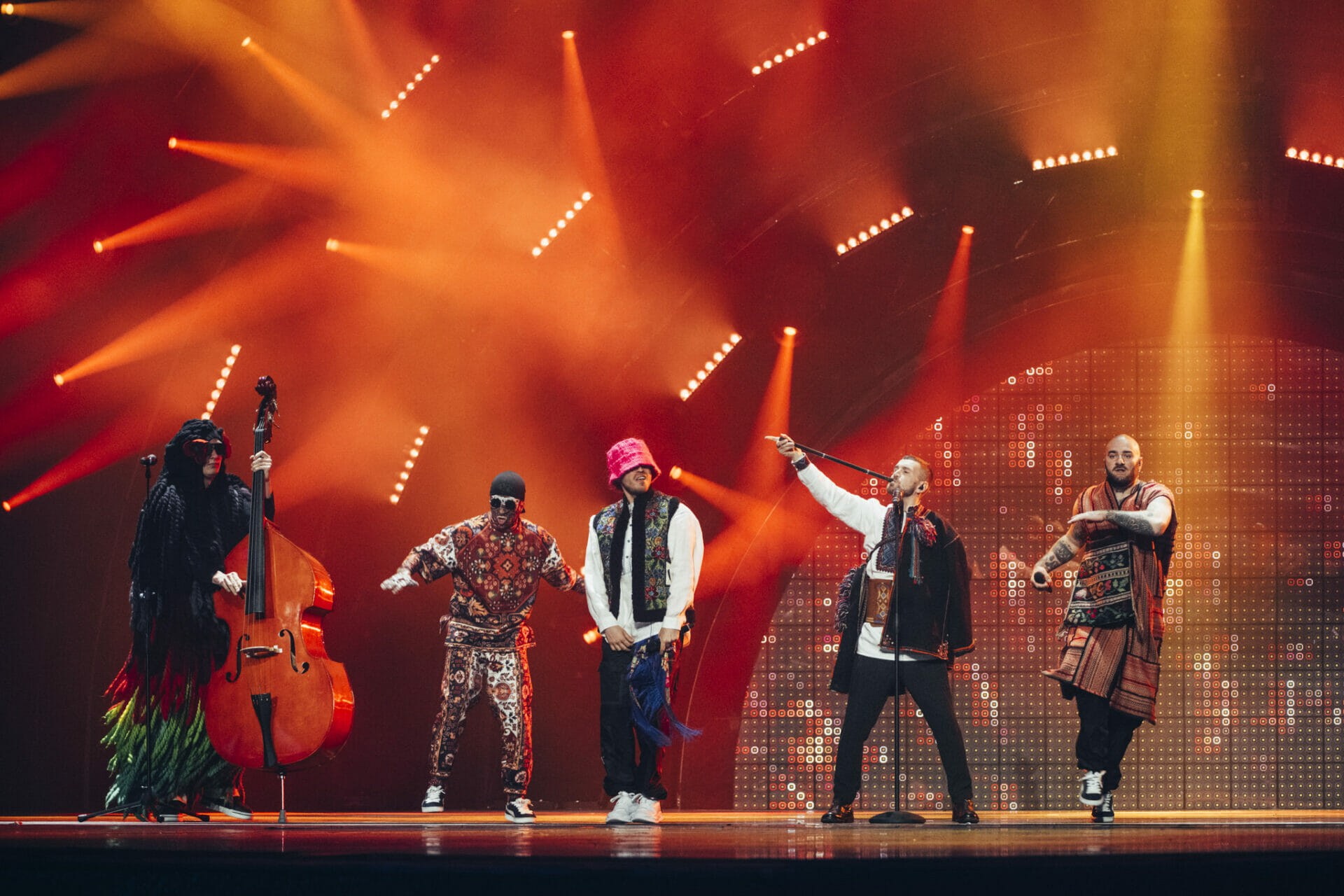
Where the politics begin
Defining the realm of the political is a political choice itself. At Eurovision 2022, many contestants wore the colors of Ukraine or waved Ukrainian flags without any admonitions from the organization. Again, this was admirable on the part of the performers. But Iceland must not have forgotten the fine they received for waving Palestinian flags on the stage of Eurovision 2019. As the commentator Michel Segalov observed on The Guardian, “I saw the flags of many nations on display. Why not those of Israel’s neighbors?”.
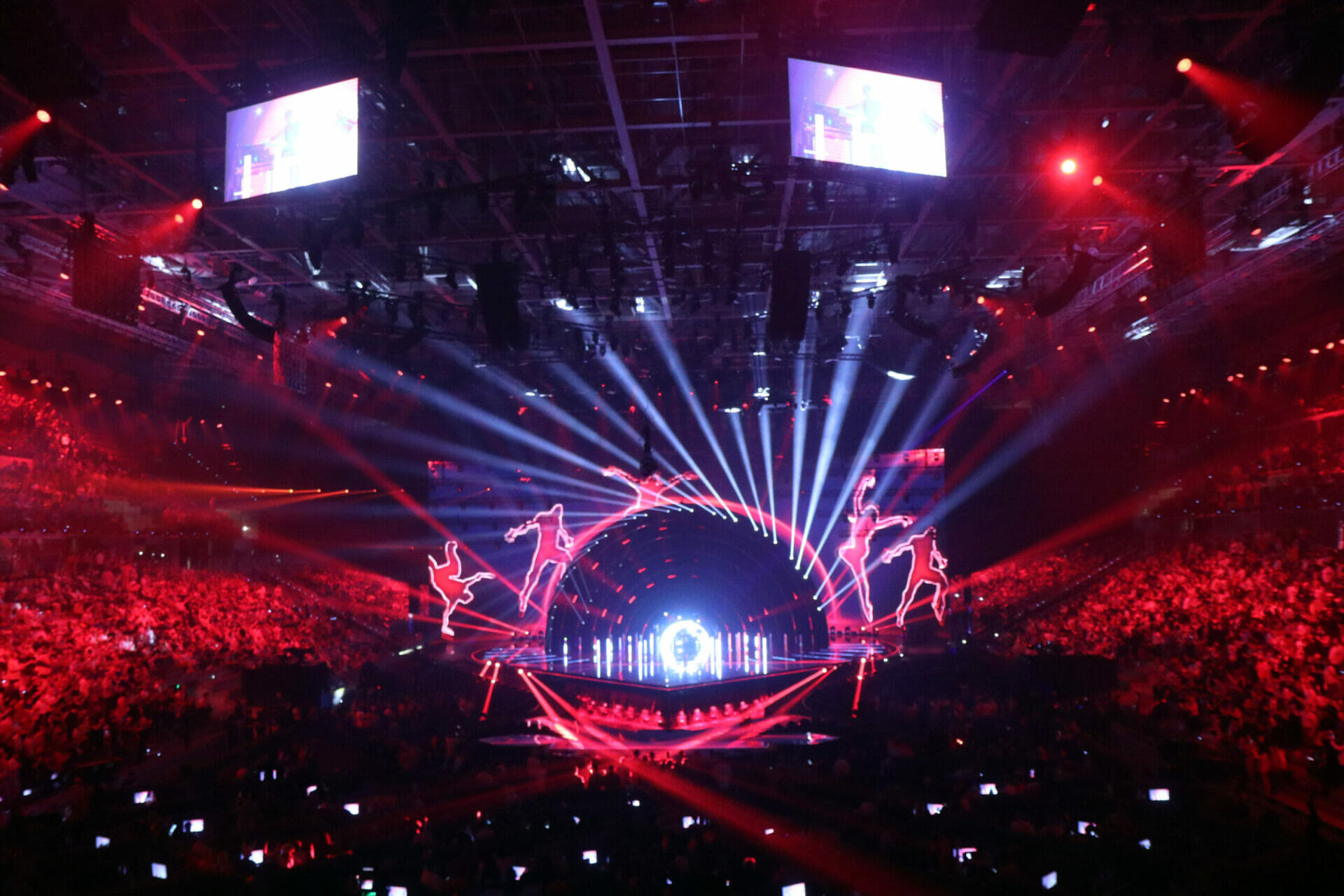
Oleh’s own words earned Ukraine no sanction because they were deemed by the ESC organization to be a humanitarian appeal, not a political one.
The second, harder issue, is about Eurovision 2023. Ukrainian president Volodymir Zelensky already knows where it should take place. He wants it to be held in Mariupol. “I’m sure Ukraine will be happy to host Eurovision in a new, integrated, and happy Country next year,” Oleh said in the winners’ press conference.
Hopefully, peace will make it possible. Eurovision 2022 was something different than the usual, supremely pop, over-the-top show. There was a bittersweet aftertaste this time.
After the congratulations to Kalush Orchestra for the victory, there remains uncertainty about the future edition, and hope that the situation may soon change.
After all, also through the music can people make their voices heard.





